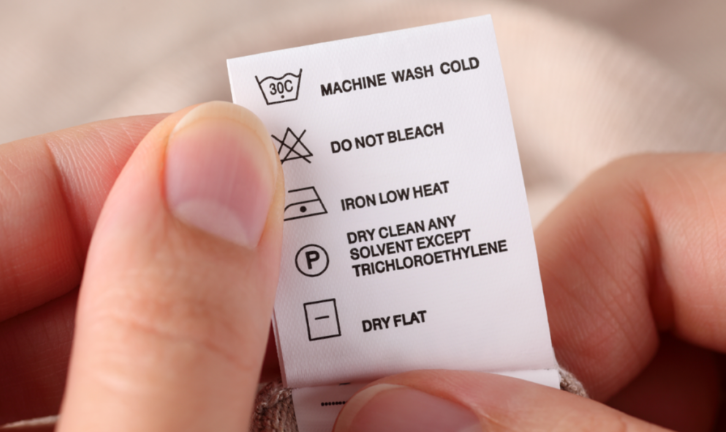Every aspect of a product, from its design to its packaging, plays a significant role in determining how customers perceive it. Many people overlook fabric labels, which are small tags attached to clothes. However, they are powerful tools for communicating a brand’s story and connecting with customers.
Among the many details that make branding, these labels play a vital role in creating storylines. Moreover, a brand can also create more meaningful brand experiences for its customers through the effective use of these labels.
How Brands Use Fabric Labels To Tell Stories
Brands can use fabric labels to teach stories about their origins, craftsmanship, or sustainability commitment. For example, Patagonia, a brand known for its environmental commitment, uses these labels to educate people about its sustainable practices. Levi’s, a brand known for its jeans, also uses these labels to tell the story of its long history. Gucci, a brand known for its luxury products, uses these labels to reinforce its brand identity.
How Fabric Labels Affect Customers’ Perception Of A Brand
The way that consumers perceive a brand can be significantly influenced by these labels. They can aid consumers in recalling the brand and recognizing its values. They may also foster a sense of affinity for the brand. This results in repeated sales increases that ultimately contribute to the growth of a business.
Possibilities With Fabric Labels
In the past, clothing only needed fabric labels to indicate what material it was made of and how to care for it—they’ve developed into the ideal means of communicating a brand’s narrative over time. They can demonstrate the brand’s values and distinctive qualities. Therefore, Tyvek tags are reasonably priced, long-lasting, and ecologically friendly, making them an excellent option even for small businesses.
Visual Identity Amplifiers
These labels also serve as a visual representation of a brand’s identity—they express the brand’s essence through fonts, color palettes, and design details. They also act as a canvas where a brand’s character, beliefs, and objectives are compressed into a compact space. Additionally, when a fabric label is expertly crafted, a brand’s core identity can be conveyed effortlessly, highlighting sophistication, excellence, and responsibility.
Reflections Of Brand Values
Beyond their practical role, these labels often mirror a brand’s values and commitments. For instance, labels composed of sustainable materials or eco-conscious messages communicate a brand’s dedication to environmental stewardship. Similarly, labels underlining premium quality materials or ethical sourcing reflect a brand’s commitment to excellence and responsible practices. In this way, the labels serve as silent advocates, aligning consumers with the brand’s values.
Eliciting Emotional Bonds
Brands convey narratives through these labels that go beyond basic information to evoke feelings and bond with consumers. They can evoke nostalgia, curiosity, or a sense of luxury and comfort in any context. As a result, the product stimulates an emotional connection, intertwining with the consumer on a deeper level. Simply put, an aesthetically pleasing label can enhance a product’s perceived value and evoke positive feelings toward the brand.
An Illustration Of Precision And Craftsmanship
Fabric labels stand as a symbol of a brand’s quality and attention to detail. The quality of materials, accuracy in design, and careful placement of these labels signify a commitment to excellence. The product’s label and the product itself also convey to the customer that each component of the product has been expertly crafted and has undergone extensive consideration—Because of this, clients feel appreciated, which raises client satisfaction and promotes business expansion.
Building Brand Loyalty And Recognition
Consistent and well-crafted custom-printed fabric labels significantly improve brand recognition and recall. They become a recognizable symbol for consumers, simplifying the identification and selection of products from their favorite brands. This consistency boosts brand loyalty, as consumers associate the familiar label with positive experiences and trust in the brand’s reliability. To maintain the customer’s trust, you can take the services of reliable manufacturers, as they will provide you with the same quality, color, font, and size that you previously ordered.
Conclusion
Fabric labels go beyond their functional roles; they are creators of narrative in their own right. The simplicity of these labels captures the essence, values, and craftsmanship of a brand. Moreover, they shape consumer perceptions, develop emotional bonds, and encourage brand loyalty.
Despite being unspoken storytellers, fabric labels remain essential elements of the brand story, leaving a lasting impression on consumers. In short, these labels are a complete pack of a brand impression conveying a positive image of the business to make it successful.

